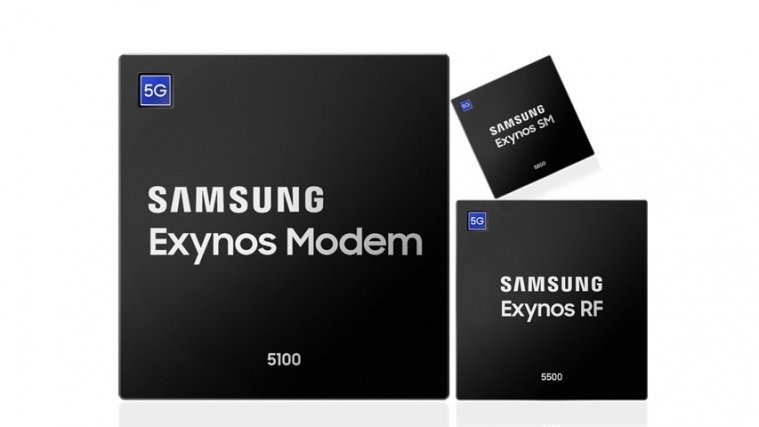Samsung has officially announced that it has started mass production of its 5G modems and RF chipsets.
Samsung clearly plans to usher in the 5G era with quite a bang. The company introduced the multi-mode Exynos modem 5100 back in August 2018. They will be adding to the mix the Exynos RF 5500, a new RF transceiver, and the Exynos SM 5800, a supply modulator solution.
This 5G communications solution will support legacy networks, 2G, 3G and 4G, well as 5G New Radio (5G-NR) sub 6gHz networks. The Exynos 5100 modem has already been tested on an OTA (over-the-air) 5G-NR data call test. Samsung does plan to cover all aspects of the network requirements, which is good.
The RF transceivers are an important part of this setup, as they facilitate the transmission of data over cellular networks via the smartphone. The Exynos RF 5500 has 14 receiver paths for download with support for 4×4 MIMO (Multiple-Input, Multiple-Output) and higher-order 256 QAM (Quadrature Amplitude Modulation) scheme. That sounds quite powerful.
It has also been reported by Samsung that the Exynos SM 5800 will increase power efficiency by cutting down consumption by 30%. They plan to do so by adjusting the supply voltage to be in sync with the modem’s RF input signal.
Samsung has been a leading innovator in the sphere of semiconductor technology. However, they have fallen behind in the game when it comes to modem chips. In fact, Galaxy S10 sold abroad will come fitted with Qualcomm’s X50 chip as a modem instead. Their competitors, Qualcomm and Intel, have covered quite a distance.
We hope their own line of 5G solutions help Samsung keep abreast of their competition.
Related:
- List of Android devices supporting 5G
- Check out the Samsung Galaxy S10 5G
- Samsung Galaxy Note 10 and Galaxy Note 10e






